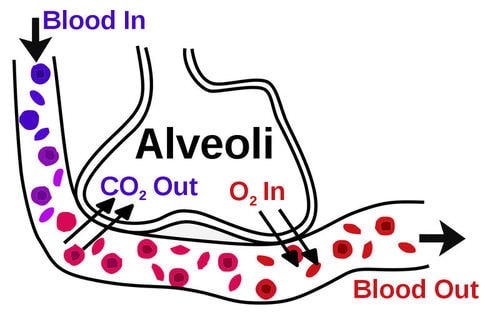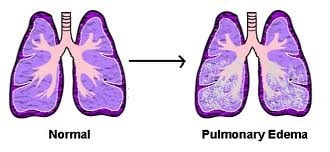
High Altitude Pulmonary Edema, also known as HAPE, is the deadliest but least understood acute mountain sickness killer and can be deadly within hours of experiencing symptoms. HAPE is a build up of liquid in the lungs which makes it difficult for the affected person to breath properly do to quick elevation gains. When a person who is susceptible to HAPE climbs elevation quickly, for reasons still not fully understood, the body reacts, and the lungs fill with liquid which prevents oxygen from entering into the cardiovascular system.

Normally your lungs fill with oxygen which then is moved into your blood stream through thin walled tissue pockets lining your lungs and cardiovascular system called Alveoli. The oxygen is moved into your blood and spread throughout your body while waste products are removed. This allows the human body to function normally. HAPE occurs when these thin walled pockets fill with liquid preventing the oxygen from being absorbed into the blood stream and the waste products from being removed. This causes difficulty breathing and without quick decent from high elevation causes the lungs to become saturated with liquid which eventually could lead to death if not acted upon quickly.

HAPE affects about less than 1% of people who ascend altitudes of 8,200 feet (2,500 meters), but perhaps what is most surprising is that we still don’t understand who is susceptible to getting HAPE and why some people are more at risk than others. Researchers from APEX, a high-altitude research charity, set up a database to understand why some people are more at risk and what causes HAPE to occur. According to researchers at APEX, those who have been sick recently with the common cold, or those who have been exercising at high altitudes are more prone to HAPE.
Although this disease is not very common, It’s important if you experience shortness of breath, difficulty breathing, if you’re coughing up watery fluid, or have blueness of the skin to assume that you are experiencing HAPE symptoms and to descend elevation quickly.